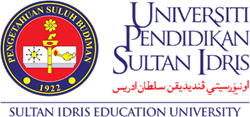Factors influencing the educational expectations of Chinese youth
DOI:
https://doi.org/10.37134/jrpptte.vol14.1.6.2024Keywords:
Educational, expectations, factors, influence, youthAbstract
In China, education is an indispensable part of the growth of teenagers, and the results of education are also the achievements that teenagers should achieve at this stage. Educational expectation as a socio-psychological variable has an important impact on student's educational results. In the “Wisconsin Model”, educational expectation as an intermediary variable has been a concern by researchers Unfortunately, limited studies were found about the influencing factors of educational expectation. As a result, this study will examine the influencing factors on the educational expectations of Chinese teens using a sample of teenagers aged 13 to 15 as well as the feedback from their parents, which was gathered in 2018 from China Family Panel Studies(CFPS). Data were analyze using SPSS 26 to get the descriptive statistic and nested model result. Result found, the educational expectations of the teenagers are somewhat influenced by their home background and the school environment.
Downloads
References
Atyekin, C., Baltacı, S., & Yıldız, A. (2018). Investigation of parents’ expectations from mathematics education in Turkey. Acta Didactica Napocensia, 11(3-4), 59-78. https://doi.org/ktsn
Backes, B., Cowan, J., Goldhaber, D., & Theobald, R. (2022, October). Teachers and school climate: Effects on student outcomes and academic disparities (Working Paper No. 274). CALDER Working Paper. https://caldercenter.org/publications/teachers-and-school-climate-effects-student-outcomes-and-academic-disparities
Coleman, J. S. (1988). Social capital in the creation of human capital. American Journal of Sociology, 94, S95-S120. https://doi.org/kts3
Cross, F. L., Marchand, A. D., Medina, M., Villafuerte, A., & Rivas-Drake, D. (2019). Academic socialization, parental educational expectations, and academic self-efficacy among Latino adolescents. Psychology in the Schools, 56(4), 483-496. https://doi.org/ktth
Huang, T., Hochbein, C., & Simons, J. (2018). The relationship among school contexts, principal time use, school climate, and student achievement. Educational Management Administration and Leadership, 48(2), 305-323. https://doi.org/kttj
Li, W., & Xie, Y. (2020). The influence of family background on educational expectations: a comparative study. Chinese Sociological Review, 52(3), 269–294. https://doi.org/10.1080/21620555.2020.1738917
Liu, J., Peng, P., & Luo, L. (2020). The relation between family socioeconomic status and academic achievement in China: A meta-analysis. Educational Psychology Review, 32, 49-76.
Ministry of Education of the People's Republic of China. (2021, May 30). 赓续共产党人精神血脉 [Continue the spiritual blood of the communists]. http://www.moe.gov.cn/jyb_xwfb/moe_2082/2021/2021_zl31/202105/t20210531_534389.html
Rizzotto, J. S., & França, M. T. A. (2022). Indiscipline: The school climate of Brazilian schools and the impact on student performance. International Journal of Educational Development, 94, Article 102657. https://doi.org/kttk
Ronnie, J. B., & Philip, B. (2021). Expectations and what people learn from failure. In Expectations and actions (pp. 207-237). Routledge.
Sewell, W. H., & Hauser, R. M. (1993). A review of the Wisconsin Longitudinal Study of social and psychological factors in aspirations and achievements 1963-1992. Center for Demography and Ecology, Working Papers, 92-01.
Sewell, W. H., & Shah, V. P. (1968). Parents' education and children's educational aspirations and achievements. American Sociological Review, 33(2), 191-209. https://doi.org/dk66v7
Sewell, W. H., Haller, A. O., & Straus, M. A. (1957). Social status and educational and occupational aspiration. American Sociological Review, 22(1), 67-73. https://doi.org/dsgg63
Wang, F., Liu, Y., & Leung, S. O. (2022). Disciplinary climate, opportunity to learn, and mathematics achievement: An analysis using doubly latent multilevel structural equation modeling. School Effectiveness and School Improvement, 33(3), 479-496. https://doi.org/ktvj
Xiaoyu, Z. (2023). CFPS user contributed data for replication-EJ. Peking University Open Research Data. https://doi.org/kts3
Yang, L., & Hong, Y. (2023). Education Informationization and Education Power: The Influence of Fintech on Educational Equity. ECNU Review of Education, 20965311231210312.
Ying, Q., & Yidan, Z. (2021, April). School Effects of Father Presence on Middle School Students' Academic Performance: A Hierarchical Linear Modeling Analysis Based on CEPS Data. In 2021 International Conference on Internet, Education and Information Technology (IEIT) (pp. 309-318). IEEE.
Yu, S., Liu, Y., & Guo, R. (2022). “How does my family affect me?” The family cultural capital impact on Chinese junior high school students’ academic achievement. Thinking Skills and Creativity, 46, 101146.
Zysberg, L., & Schwabsky, N. (2021). School climate, academic self-efficacy and student achievement. Educational Psychology, 41(4), 467-482. https://doi.org/gnk2dx
Downloads
Published
How to Cite
Issue
Section
License
Copyright (c) 2024 Wu Yifan, Pu Weiwei

This work is licensed under a Creative Commons Attribution-NonCommercial-ShareAlike 4.0 International License.




